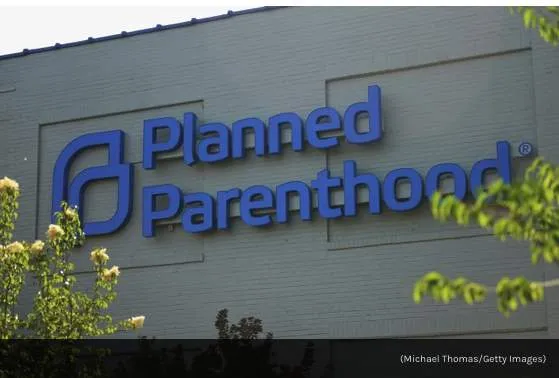(Washington Free Beacon) Fred has a history of developmental issues. He was diagnosed with autism—technically ADHD with autistic traits—at age four, struggled with depression and anxiety as he got older, and was expelled from three different special-needs schools due to behavioral problems, stemming in part from an impulse control disorder. He is an 18-year-old high school student in New Jersey and lives with his parents, who asked the Washington Free Beacon to withhold his real name.
Like many people on the autism spectrum, Fred cycles through obsessions and extreme views. He was part of an alt-right group chat as recently as last year, his parents said, but apostatized suddenly and now considers himself far left.
Still, Fred has a few interests that have remained constant throughout his life, all fairly typical for a teenage boy: guns, power tools, and metalworking. That made it all the more shocking when, in December 2022, at 17 years old, he announced he was a transgender woman.
The revelation came a few months after Fred’s best friend, who also has autism, began identifying as transgender. Concerned that this was another phase, but open to the possibility that it wasn’t, Fred’s parents tried to enroll their son, whom they were now calling by a female name at home, in the Gender and Autism Program at Children’s National Hospital, the only gender clinic in the country specializing in autistic youth. Fred was determined to take hormones, they told the clinic, which is known for its lengthy assessments. Before he did, they wanted to be sure his dysphoria wasn’t transient or peer-driven.
The clinic informed them in March that it had a waitlist of about a year. And Fred, who would be turning 18 in two months, wasn’t willing to wait.
In late July, while his parents were out of town and after he had come of age, Fred went to Planned Parenthood, which prescribes hormones to any legal adult without a letter from a therapist or a formal diagnosis of gender dysphoria. The only requirement is a brief consultation, usually with a nurse practitioner, about the drugs’ effects, which range from mood swings and male pattern baldness to permanent infertility.
How brief? Fred arrived at his local clinic, on North Fullerton Ave. in Montclair, New Jersey, at around 11:00 a.m., according to phone tracking data his parents used to monitor his whereabouts. By 11:39, they received a text message from CVS: Fred’s estrogen prescription was on its way. Instead of a months-long evaluation by expert psychiatrists, a nurse practitioner had, in little over 30 minutes, prescribed their special-needs son a powerful drug without their knowledge or consent.
“It’s criminal what Planned Parenthoods all over the country are doing,” Fred’s mother, a New Jersey pediatrician, said. “And most people have no idea this is happening.”
Fred’s story—corroborated through nursing and medical board complaints, locational data, prescriptions, text messages, emails, and other documents reviewed by the Free Beacon—is a microcosm of how the nation’s largest abortion provider is eroding the already thin guardrails on gender medicine in America. As waitlists swell at clinics like Children’s National, and as concern mounts about the perils of rushed transition, many young people are using Planned Parenthood to skip the line and circumvent the safeguards, making it much more difficult to gatekeep what was once a tightly regulated treatment.
That dynamic has sparked criticism of the organization from an unlikely source: the liberal psychologist who helped bring pediatric gender medicine to the United States.
“I have always been a very strong supporter of Planned Parenthood and am pro-choice,” said Laura Edwards-Leeper, who co-founded the nation’s first pediatric gender clinic, at Boston Children’s Hospital, in 2007. “But they have taken on something that they are not equipped to handle.” The lack of gatekeeping is so bad, she added, that some of her patients received hormones from Planned Parenthood before coming to her for an assessment.
Others, like Erica Anderson, a former president of the US Professional Association for Transgender Health, say patients they’ve sought to delay from transitioning have simply turned to Planned Parenthood. “I’ve had patients desperate to get hormones where I’ve been the voice of caution,” said Anderson, who is transgender herself. “In some cases, they say, ‘I’ll just go to Planned Parenthood when I’m 18.’ Usually I can dissuade them but sometimes I can’t.”
Planned Parenthood is one of the largest providers of cross-sex hormones in the United States, and one of the fastest growing. Affiliates in the greater Portland area saw a nearly 400 percent increase in “gender-affirming care visits” between 2021 and 2022, according to their annual reports, while those in Ohio saw a 544 percent increase over the same period. Hormones now appear to be in higher demand than abortion at some branches: A Planned Parenthood in Knoxville, Tenn., told NPR that nearly a fifth of its patients sought hormone therapy in 2021, whereas abortion makes up just 3 percent of Planned Parenthood’s services nationally.
This growth has come as pediatric gender clinics, which used to wait months before prescribing hormones, are becoming more laissez faire themselves. Some now prescribe hormones on the first visit, a Reuters investigation found last year, while others say ballooning caseloads have made it harder to conduct the kind of in-depth assessments once standard in the field.
But with Planned Parenthood a constant temptation for older teens, even the most conservative clinics have an incentive to reduce gatekeeping if they don’t want to lose patients. The result, Anderson said, is a race to the bottom that pulls all providers, no matter their philosophy, toward the informed consent model adopted by Planned Parenthood, which doles out life-altering drugs to almost anyone who requests them. And that model has alarmed even the liberal pioneers of gender medicine, who say that some 18-year-olds—especially those with special needs—cannot meaningfully consent to hormones without extensive counseling.
“There are 15-year-olds I work with who are much more mature than average and can make these kinds of decisions,” said Edwards-Leeper, who, along with Anderson, has attacked GOP efforts to ban hormone therapy for minors. “But there are also 20-year-olds who are struggling in various ways that make them less able to give informed consent.”
These doctors argue that Planned Parenthood, which relies heavily on nurse practitioners and employs few psychiatrists, is ill-equipped to handle complex cases like Fred’s. Its clinicians are not trained to assess patients’ “developmental trajectory,” Anderson said, including the role social media or childhood trauma may be playing in their distress. Nor are they trained to consider the impact of autism, which often co-occurs with gender dysphoria and—according to multiple sets of clinical guidelines—warrants a more cautious approach to hormone therapy.
“Because it is often harder for an adolescent with [autism] to comprehend the long-term risks and implications of gender-related medical interventions,” guidelines published in the Journal of Clinical Child & Adolescent Psychiatrystate, “consenting for treatment may be more complex in this population.”
The guidelines, developed by proponents of hormone therapy who work with autistic youth, add that a “black-and-white” mindset can lead some on the spectrum to assume, mistakenly, that “gender nonconforming interests” imply a need for medical transition.
Even the World Professional Association of Transgender Health (WPATH), whose standards of care are among the most aggressive and controversial in the field, says “it is critical to differentiate gender incongruence” from autistic “obsessions” and “rigid thinking.” Though the group does recommend an informed consent standard for people over 18, it also states that its guidelines for minors—which call for “comprehensive” evaluations by experts on autism and other disorders—are “often relevant” to young adults.
“Some young adults are developmentally more like adolescents,” Edwards-Leeper, who helped write the WPATH guidelines for minors, said. “Planned Parenthood really isn’t following the standard of care if they don’t take that into account.”






